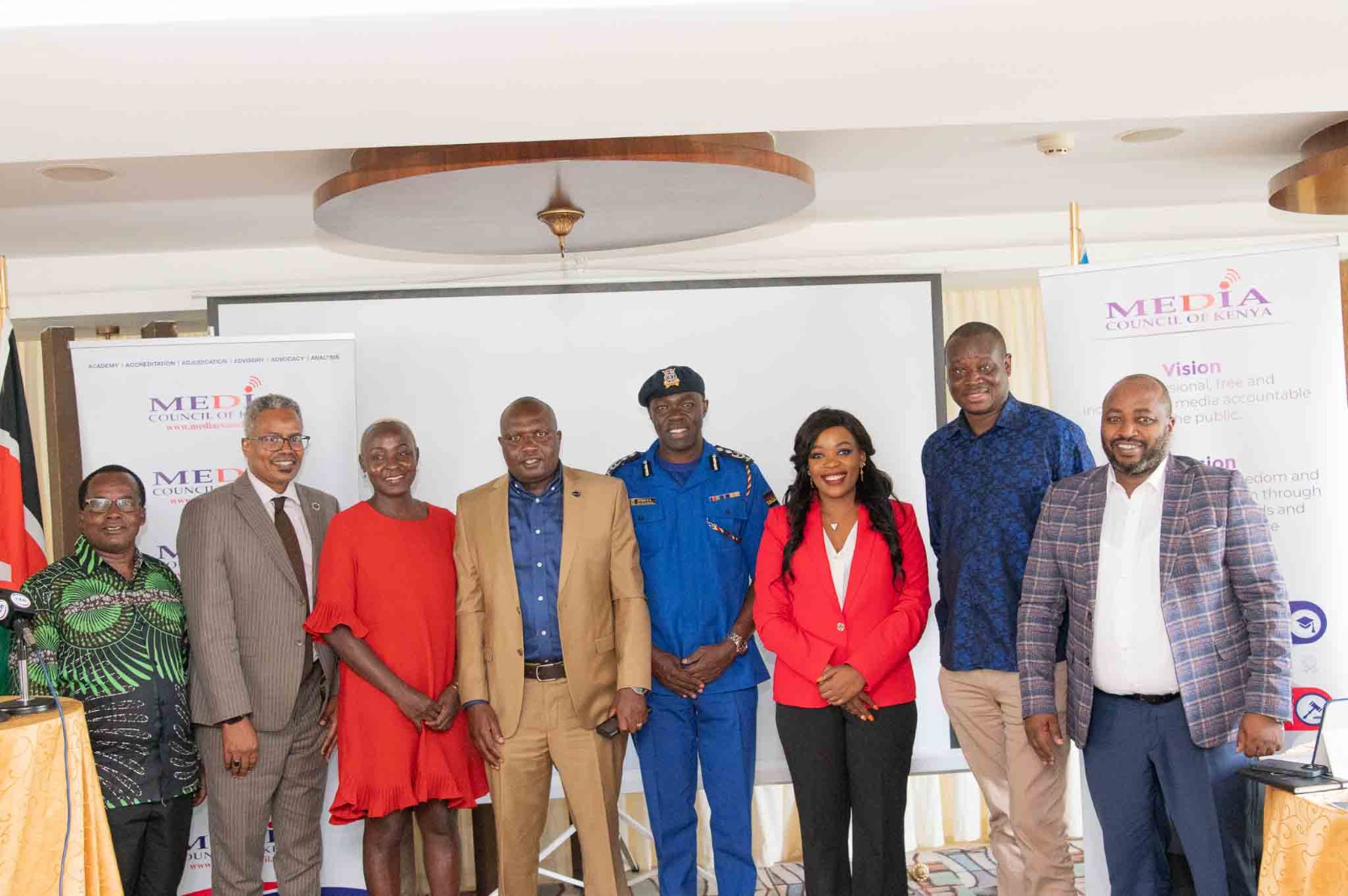
The Media Council of Kenya (MCK) joined stakeholders across the country and globe in commemorating this year’s World Press Freedom Day, with renewed calls for ethical deployment of artificial intelligence (AI) in journalism, improved safety of media professionals, and protection of press freedom in an evolving digital ecosystem.
This year’s event, themed “The Impact of Artificial Intelligence on Press Freedom and the Media”, focused on the opportunities and risks presented by AI in the newsroom, including its role in transforming storytelling, reshaping audience engagement, and amplifying misinformation.
Speaking during the commemoration held in Nairobi, MCK Chief Executive Officer David Omwoyo noted that while AI tools such as automated content generation, data analysis, and voice synthesis offer efficiency gains, they also raise urgent ethical concerns.
“Artificial intelligence is not just a tool—it’s a test of our ethics. As we integrate AI into journalism, we must ensure the human element remains central, upholding dignity, truth, and accountability,” he said.
He warned that the misuse of AI could erode public trust in journalism if not regulated through clear ethical frameworks, adding that innovation must be accompanied by integrity and accountability.
Spokesperson for the National Police Service, Mr Michael Nyaga Muchiri, reiterated the police’s commitment to upholding press freedom and fostering constructive engagement with the media.
“Freedom of expression must be exercised without fear. Article 34 of our Constitution provides a clear framework for media freedom, just as Article 244 mandates the National Police Service to build trust and foster public relations,” he said.
He called for the inclusion of journalists in policy conversations, particularly on emerging areas such as digital rights and AI governance.
Acting Deputy Director of Public Prosecutions Hassan Abdi reaffirmed ODPP’s commitment to protecting journalists from unlawful threats and ensuring perpetrators of media-related offences are held accountable, noting the growing complexity of AI-driven violations.
President of the Kenya Editors’ Guild, Zubeida Kananu, called for deliberate efforts to address systemic inequalities in the newsroom and to ensure AI serves the public good, not vested commercial or political interests.
“AI is not neutral. It reflects the biases and intentions of those who deploy it. Press freedom must evolve with technology, not be compromised by it,” she said.
Kenya Union of Journalists Secretary-General Eric Oduor decried the poor working conditions facing many journalists, noting that internal reforms are necessary to uphold true freedom of the press.
“Freedom of the press isn’t just about resisting external interference—it’s also about putting our own house in order. To restore dignity to journalism, we must speak honestly about pay, ethics and accountability,” he said.
Queenter Mbori, Executive Director of the Association of Media Women in Kenya, highlighted the continued threat of sexual harassment and gender-based violence in newsrooms and called for stronger enforcement of safety protocols.
“As we embrace AI, we must also confront the entrenched inequalities that silence too many voices. A free press must also be a safe press,” she said.
Oloo Janak, Director of Programmes at the Kenya Correspondents Association, urged for decentralised capacity building and inclusive digital policies to ensure rural journalists are not left behind in the AI revolution.
Editor-in-Chief of KBC, Samuel Maina, emphasised the need to preserve journalistic integrity in the age of automated content and algorithmic influence.
“AI may transform how we tell stories, but it must not replace the soul of journalism—integrity, context, and public accountability,” he said.
As AI continues to reshape journalism, speakers at the event agreed that the future of press freedom depends on the sector’s ability to innovate ethically, uphold rights-based principles, and invest in media sustainability.
The Council used the occasion to launch the Report on the Media Environment in Kenya, which captures the key trends, challenges and opportunities shaping the country’s media landscape. The report highlights a rise in digital harassment, continued threats to journalists’ safety, declining public trust in media institutions, and growing concerns about employment precarity within the industry. It calls for the strengthening of regulatory safeguards, improved working conditions, and investment in digital resilience and professional capacity building across the sector.
A panel discussion under the theme “Beyond the Stories: The Opportunities and Challenges Shaping Journalists’ Rights and Freedoms” was also held as part of the commemoration. The session brought together media practitioners, editors, legal experts, and digital rights advocates to reflect on emerging threats such as AI-driven disinformation, surveillance, and gender-based violence in newsrooms. The panellists underscored the need for inclusive policy frameworks, media literacy, and ethical innovation to safeguard press freedom.